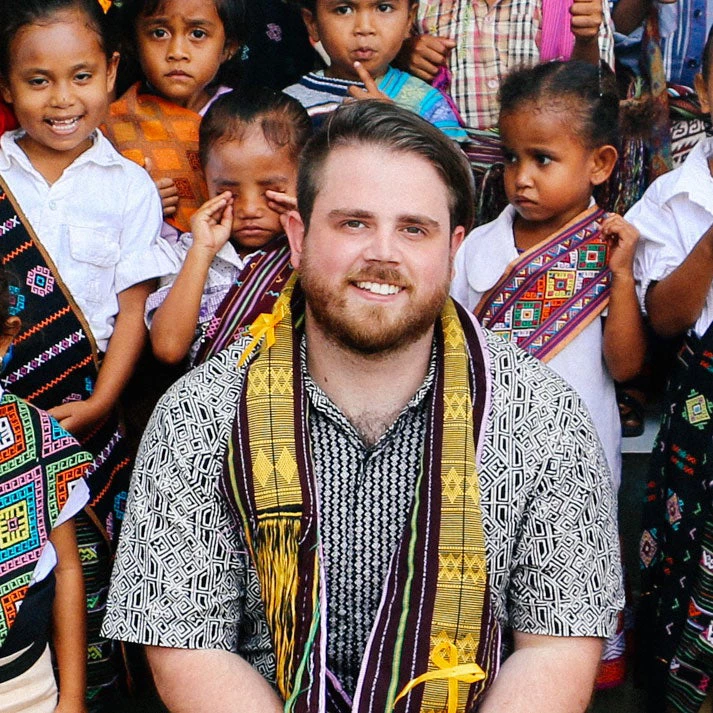“Indonesia’s future is at stake”, states Camilla Holmemo in her opening address at the Early Childhood Development Policy Conference, held in July 2017 in Jakarta. The program leader for human development, poverty and social development of the World Bank in Indonesia rallies the audience by highlighting the lack of access to early childhood education and development (ECED) services and the high incidence of child stunting in Indonesia.
Despite the country’s middle-income status, one in three children under five are stunted, the fifth highest rate in the world. For these children, the likelihood of becoming productive citizens is significantly hampered – unless we do something about it now.
Early childhood interventions are widely recognized to be among the most cost-effective investments that a country can make in building human capital, reducing inequality, and promoting future growth and prosperity.
The World Bank has had a number of partnerships with the Government of Indonesia in this field. In particular, the Early Childhood Education and Development Project, which ran from 2006 until 2013, and the ongoing Generasi ECED Frontline Pilot.
This two-year pilot is a collaboration between the World Bank, the Ministry of Villages and the Ministry of Education and Culture with support from the Australian Government. The program aims to work through Indonesia’s highly decentralized governance system to increase the availability of high quality, affordable professional development for early childhood education (ECE) community teachers in 25 rural districts.

Harris Iskandar, the Director General for Early Childhood Education and Community Education, and a key government partner in the pilot, cited the program when asked about what is being done to strengthening collaboration between education and community development stakeholders on early childhood education. He stated that the program is supporting cooperation between stakeholders at the central, subnational and village level to introduce a district-based teacher training system in 25 districts.
A key aim of the pilot program is to leverage Indonesia’s recently introduced Village Law, a system of direct fund transfers to villages across Indonesia to finance community development programs. These funds represent an opportunity for villages to invest in their own ECE centers and community teachers in light of limitations in public investments.
During the event, Farid Abdillah, a village head from Trenggalek, East Java, delivered a passionate speech demonstrating the power that community leaders can have in driving the early childhood agenda in Indonesia’s increasingly decentralized governance system.
Abdillah shared that he had grown tired of just building roads and bridges during his 10-year tenure as a village head, and now sees the need to use the village funds to invest in the incredible asset that is human capital.
Under Abdillah’s leadership, Pandean village has made significant investments in early childhood education – Rp 15 million ($1,126) in 2015 and Rp 90 million ($6,755) in 2016.
The village is one of the more than 2,500 participating in the ECED Frontline program. As part of the program, village governments nominate local teachers to receive training, and community groups enter into contract arrangements with the NGOs, monitor performance as well as manage and disperse funds. By introducing community participation into the service delivery process, the program is laying the foundations of a system that can be replicated so that villages across Indonesia are better able to invest their own funds to improve the quality of ECE services in their communities.
The ECED Frontline program also engages non-traditional actors who can create positive change in the early childhood space such as Arumi Bachsin, a high profile figurehead for the Bunda PAUD, or Mothers of ECED group.
This ECED advocate group is formed by wives of prominent government leaders in Indonesia, from the president and his ministers down to the level of district and village governments. The ECED Frontline program has sought to leverage the groups unique informal power, as well as its ability to facilitate feedback between education providers on the ground and those in positions of power.
In bringing together a director general, a village head and the wife of a district head to share their unique perspectives on early childhood development, the conference serves to remind us of the diversity of actors that are crucial to the success of ECED in Indonesia. These kinds of actors have different but essential roles to play in tackling the country’s high stunting rate and ensuring that all children have the opportunity to fulfil their potential.



Join the Conversation